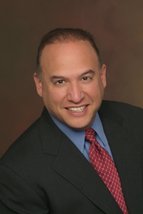Dr. Goldstein and his sons enjoying a hike.
A Fertility Specialist's Perspective on the MalebrJourney Through Infertility
Sponsored by Fertility Specialists of Texas
Written by Dr. Jerald Goldstein
Onbrthis year's Father's Day, I cannot help but think about the awesomebrresponsibility that comes with being a father. After med school, I thought Ibrreally understood what life was about — but I didn't.
Ibrtruly think becoming a father is one of the most maturing experiences a man canbrgo through, even though he might not realize it at the time. So often men getbrlost in the infertility evaluation, and there can be a general belief thatbrinfertility is a female problem. In fact, approximately one-third of cases arebrmale-related issues, and regardless which partner is the cause, infertility is a couple's problem that must be dealtbrwith as a team.
Emotionally,brinfertility carries a heavy burden for men, even though they might not showbrit. This concept is extremely important as the feelings of thebrman often go unnoticed.
So how doesbrthis become apparent?
Whenbrspeaking to couples with infertility issues, often the husband does not seem tobrbe affected by months and months of trying to conceive. It might not bebrnoticeable on the surface, but it comes out in many other ways. In my experience as a physician, men andbrwomen deal with infertility quite differently in their lives and theirbrrelationships. A man often tiesbrhis sense of masculinity to the ability to conceive a child. Many men believebrthat poor sperm quality or low sperm count make them somehow less of a man. Some men suffer intense feelings of guilt,branger or low self-esteem. These feelings can affect all aspects of their lives.
Millions of menbrconfront infertility. If your partner is having difficulty getting pregnant,bryou are not alone. The good news is many men with fertility issues go on tobrbecome fathers. Luckily,brthere are now several techniques that enable couples to have children when previously,brthis would have been difficult or impossible. brSpecifically, the ability to take a single sperm and inject it into anbregg in order for fertilization to occur is now possible. The use of this process requires in vitrobrfertilization (IVF) and must be performed by an experienced physician at abrstate-of-the-art facility.
As abrreproductive endocrinologist, it is truly one of the most gratifying momentsbrwhen you can help a couple who were once convinced they had reached the end ofbrthe road. Although not everyone is able to get pregnant, we certainly do ourbrbest to properly identify why there is difficulty and discuss what options arebravailable to each couple.
During treatment, Ibrknow many men will feel frustrated. They want to problem-solve and are affectedbrby their partner's pain. My suggestion is to see a fertility specialist so youbrcan get answers because there are usually very good options. Ask your wife whatbrshe needs. It is hard, especially when manybrmen have a sense of helplessness and frustration. I would suggest doing thisbrbefore you start treatment, as opposed to the middle of the treatment cycle.
Trust me: You don'tbrwant to get to the point where you and your partner are barely able to talk.brTogether with a plan, most couples are able to have a family. It is my wish forbryou that this Father's Day, your fertility struggle might become less stressfulbrand that this year will be the last year of your fertility journey.
Jerald S. Goldstein, M.D., a native Texan, is the founder and medical director at Fertility Specialists of Texas. He is board certified in both Obstetrics and Gynecology and Reproductive Endocrinology and Infertility. He received his Bachelor of Science degree with honors from Tulane University and graduated from the University of Texas Southwestern Medical School. Dr. Goldstein’s passion for helping couples achieve a pregnancy is reflected in his kind and compassionate relationship he develops with patients.
Following his residency and fellowship, Dr. Goldstein was an Assistant Professor in the Division of Reproductive Endocrinology at Washington University Medical Center in St. Louis.
Dr. Goldstein is the author of scientific publications in peer-reviewed journals including and Fertility and SterilityObstetrics and Gynecology
He is a member of the medical staff at Baylor Medical Center in Frisco as well as Texas Health Presbyterian Hospital. Dr. Goldstein is a member of the American Society of Reproductive Medicine, American College of Obstetrics and Gynecology as well as the Society for Reproductive Endocrinology and Infertility (SREI).
Dr. Goldstein's areas of expertise include in vitro fertilization, recurrent pregnancy loss, polycystic ovarian syndrome,endometriosis, donor egg, pre-implantation genetic diagnosis, and fertility preservation in couples undergoing therapy for cancer.
